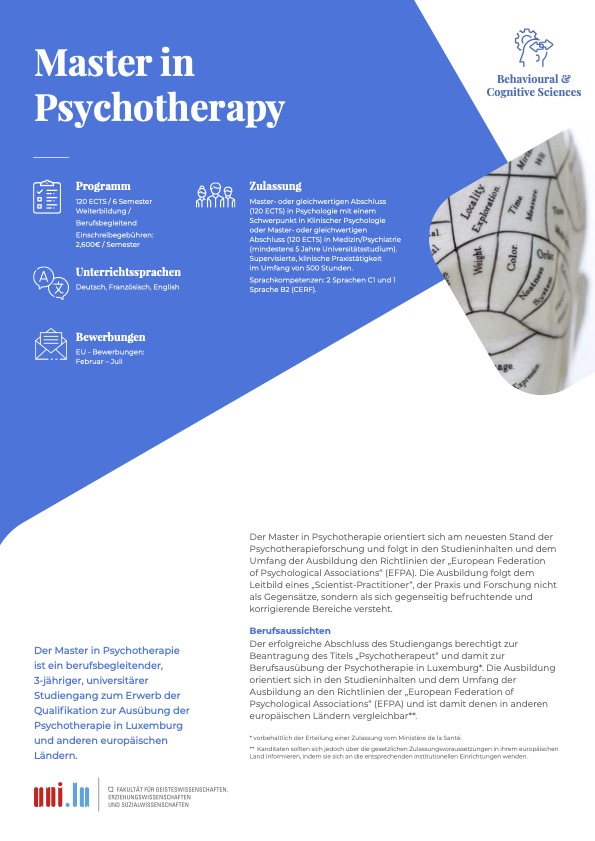Career opportunities
Successful completion of the programme entitles students to apply for the title of “psychotherapist”, and to practice psychotherapy as a profession in Luxembourg and other European countries.
More info
Download the flyer

Learning outcomes
Students develop specialised skills and knowledge in psychotherapy with a particular emphasis on evidence-based clinical psychological interventions.
At the end of the programme, students are able to:
- demonstrate an awareness and understanding of the historical origins and development of clinical psychology and psychotherapy
- demonstrate knowledge and understanding of the different approaches of clinical psychology and psychotherapy
- demonstrate a critical knowledge of the key debates in clinical psychology and psychotherapy
- critically compare and contrast differences between approaches in clinical psychology and psychotherapy
- appraise and evaluate the current evidence base of psychological interventions for different mental disorders
- identify and discuss criteria used for selecting clients suitable for different interventions
- reflect on their experience of working with e.g., cognition, exposure, response prevention, relationship aspects, and the use of structured individual sessions e.g.,agenda setting, setting homework and demonstrate skills of assessment
- reflect on their development in recognized therapeutic competencies
- evaluate the appropriateness of interventions to different types of service users
